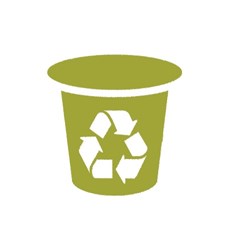Recyclable Coffee Pods May Be A Novel Idea, But Will They Work In The U.S.?
By Isaac Fletcher, contributing writer, Food Online

Nespresso Austria has developed recyclable coffee pods and a collection system, but with low-recycling rates and lack of proper guidance, the recycling program may fight an uphill battle against American consumers
As a part of the Nespresso Ecolaboration program, Nespresso has introduced a collection and recycling system for used aluminum capsules. Launched in 2009, the Nespresso Ecolaboration program currently offers more than 1,300 recycling collection points in Austria, which account for a recycling capacity of 84 percent. According to Nespresso, recycled aluminum creates a mere 5 percent of CO2 emissions that are associated with primary aluminum.
Nespresso Austria, in an effort to offer customers more convenience, asked Mondi — a provider a paper and packaging solutions — to develop a customized collection bag to further its sustainability goals. The result is a paper-based bag with a biopolymer coating that replaces polypropylene. Additionally, the bag is composed of renewable materials and the paper and coating are fully biodegradable. As far as convenience is concerned, once the bag is full, it can be safely closed by a sealing strip and then easily transported to one of the 1,300 recycling points. The bag and coffee are completely compostable, and the aluminum is easily recyclable.
Although the idea and design certainly have merit, they beg the question as to whether or not U.S. consumers would be willing to bring coffee capsules to a collection center for recycling. The relatively low-recycling rates in the U.S. are often blamed upon consumer apathy and lack of education and guidance on the subject. If current recycling statistics are any indication, a method similar to the one created by Nespresso Austria and Mondi may not prove very effective.
While some consumers will be willing to bring their collection bags to recycling points, higher rates of recycling would be achieved by ensuring that the standard curbside recycling pickup is an option for disposal. Once consumers are asked to be inconvenienced with transporting the collection bags, the likelihood of recycling greatly declines; especially considering that Nespresso capsules target a consumer base that desires ease of use and convenience.
Aside from making recycling the capsules more convenient, a financial incentive would give consumers more of a reason to participate in this type of recycling program. Without proper incentives, it is typically challenging to get American consumers to inconvenience themselves for the sake of the environment. While this is not necessarily true for all regions of the country, and rates of recycling often hinge upon the local environmental culture, recycling rates could still be improved.
Regardless of whether or not this kind of recycling program will be effective in the U.S., an important takeaway is that companies are designing and innovating with the environment in mind. Although drop-off based recycling may not be particularly popular among American consumers, with the right convenience, incentives, and/or education, companies may have more options on how to boost the rates of products being recycled.
